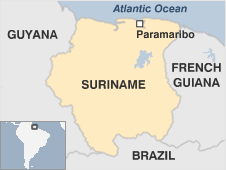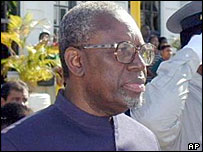Since independence from the Netherlands in 1975 Suriname has endured coups and a civil war. Former military strongman Desi Bouterse dominated politics for much of the post-independence era but the country is now under civilian rule.
| Taj Worldwide | | Taj Group | | Media | | Career | | FAQs | | Feedback | | contact us |
 |

|
|
|
|
|
|
|
|
|
|

